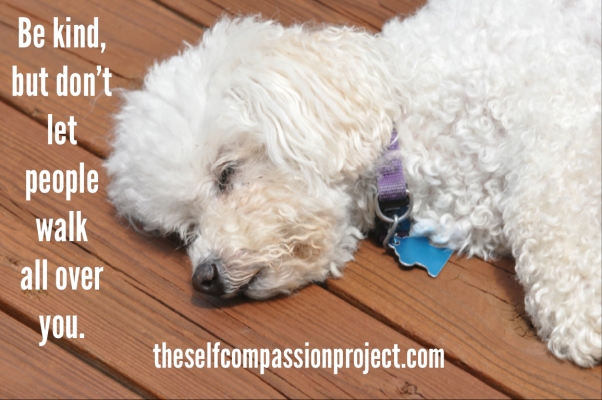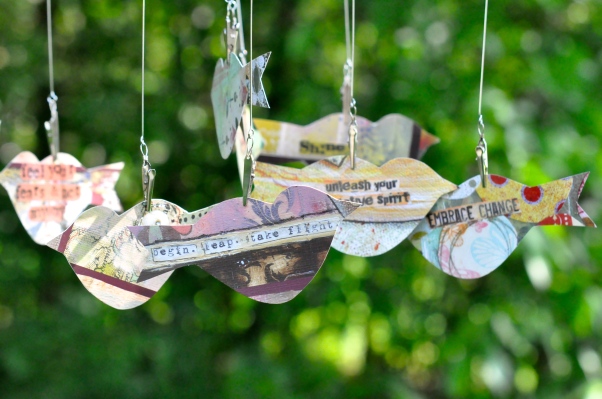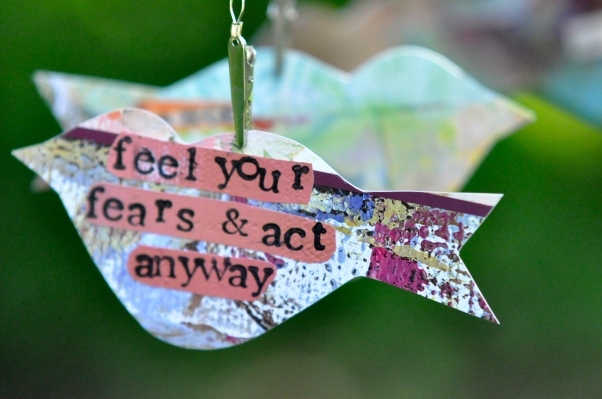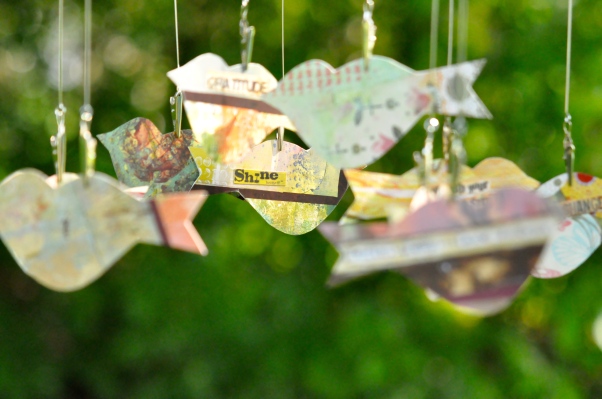 I am loving this Sounds True audio/video series on self-acceptance. For those who learn better by reading, here is part two of a rough transcript of the session with Tara Brach, Ph.D. (I watched on one computer, paused it as I went, and dictated into my phone.) I am breaking it into two posts, as it got a little long. You can still listen to this interview online here. And if you didn’t read part one, you can do so here.
I am loving this Sounds True audio/video series on self-acceptance. For those who learn better by reading, here is part two of a rough transcript of the session with Tara Brach, Ph.D. (I watched on one computer, paused it as I went, and dictated into my phone.) I am breaking it into two posts, as it got a little long. You can still listen to this interview online here. And if you didn’t read part one, you can do so here.
Tara’s first book Radical Acceptance helped me so much on a personal level, and I frequently recommended it to my clients over the years. Her newest book is called True Refuge: Finding Peace and Freedom in Your Own Awakened Heart. I have already read it once, and I highly recommend it.
In this episode, Tami Simon speaks with Tara Brach, PhD, clinical psychologist and founder of the Insight Meditation Community of Washington. Tara has been practicing and teaching meditation since 1975 and has led Buddhist meditation retreats at centers throughout North America. Her audio programs with Sounds True include Radical Self-Acceptance: A Buddhist Guide to Freeing Yourself from Shame and Finding True Refuge: Meditations for Difficult Times.
Tami: Do you think our trance of unworthiness has something to do with our contemporary society, or is it something that’s always gone on?
Tara: I think both. We are hard-wired to feel separate and to look for something to go wrong. It’s called our “negative bias” and it’s designed to keep us safe. But it’s a very quick step to thinking that something is wrong in the environment to thinking, “I’m wrong.” So there is a deficiency mind-set that comes with being human.
But there’s also a cultural component. Particularly in the West, we have very few natural ways of belonging in which we can experience our basic goodness. We live in a fear-based culture that over consumes and is competitive. We are not invited toward feeling contentment. We’re not invited to relax and say, “This moment is enough.” That would stop the economy in its tracks. Our culture feeds the sense that I should be better. I should be more.
 The tend-befriend aspect of our wiring is there, too. It’s just not as well cultivated, and it takes training. But once we get that we’re suffering because we are at war with ourselves, there can be a very deep, sincere commitment to embracing our own being and embracing life everywhere.
The tend-befriend aspect of our wiring is there, too. It’s just not as well cultivated, and it takes training. But once we get that we’re suffering because we are at war with ourselves, there can be a very deep, sincere commitment to embracing our own being and embracing life everywhere.
One way to wake up the “compassion neural networks” is the idea of conscious community: A place where we share our vulnerabilities; we mirror back each other’s goodness; we take inevitable conflicts and turn them into deeper understanding; and we listen deeply. There is a sense of belonging to each other.
Tami: Do you still struggle with self-acceptance in your own life? Do you still go into the trance of unworthiness?
Tara: Yes. Sometimes I will find I am in a bad mood and I’ll scrape below the surface and I realize I’m down on myself. Sometimes I feel I’m falling short as a friend or in caring for my aging mother. Or I think I wasn’t as present for a talk as I would’ve liked to be. Sometimes if I know I’ve hurt someone, it can feel very “sticky.” The difference between then (say 15 year ago, although it’s been a gradual shift) and now is there is less lag time. I more quickly recognize that I am caught up in the trance–in the thoughts and beliefs of an unworthy self. The other difference is that I recognize the thoughts and feelings, but I don’t believe them as much. The feelings are there and the thoughts are there, but the sense of who I am beyond the self that I am judging is much more alive and accessible. I know that there is a loving heart, a being here, an awareness that isn’t so identified with the unworthy self. But I still have to find my way back.
One of the ways I find my way back, and I talk about this a lot in my teaching, is by thinking about this metaphor:

Photo by macinate via Flickr Creative Commons
Imagine you are walking through the woods and you see a small dog. You think the dog is cute and you approach the dog, wanting to pet it. It suddenly snarls and tries to bite you. The dog no longer seems cute and you may feel some fear and anger. As the wind blows, the leaves on the ground are carried away and you see the dog has one of its legs caught in a trap. Now, you feel compassion for the dog. You know it became aggressive because it is in pain and suffering. (I also wrote about this story in the piece, Leaving Judgement Behind.) You go from being angry, to this poor thing.
I pause and get that in some way my leg is in the trap. The thing I’m judging is coming from a place of pain. Then I soften and I can be present with feelings and offer kindness to myself. I’m able to loosen the grip and arrive more fully at that sense of who I am when I’m not trapped in the trance.
Tami: I want to tell people about this tool of RAIN that you are known for. Will you explain it?
Tara: When we’re stuck in the trance, we may have a vague sense that we are there, but it’s so hard to get out that state. We get reactive and we stir things up more. So this acronym of RAIN is this easy to remember handle. When we’re caught in the trance of unworthiness, we can say to ourself, “OK, just pause.”
R, is to recognize what’s going on. All those thoughts of unworthiness are going on right here.
A stands for allow it to be there. We don’t try to get away from what’s going on. We deepen the pause.
I is for investigate. We investigate with kindness. We bring a gentle attention to what’s going on. This is where we start loosening the grip. For example, when I turn on myself for being “the sick person” I sink below the feelings– I get under the story line– and I realize I have this core belief that if I’m this bad at being sick, I’ll never wake up and be free…I’ll never be enlightened. I can really feel the fear in the body.
N stands for not-identified with the unworthy self. It sounds like a dry concept, but it’s very freeing and liberating.
So RAIN is a way to detangle the trance. And it really comes down to a mindful awareness with kindness.
Tami: In classic Buddhist teaching we are taught that we are not this solid self that we think we are. How do you understand this paradox that we have to accept and be kind to ourself, when there may not even be a self there?
 Tara: I make a translation and think of it that what we are accepting is the life that’s right here. In actuality, what we are accepting is this feeling, this hurt, this sadness, this fear, this anxiety, this whatever… We are embracing the lived experience. What happens is that when we do this, the sense of the separate self dissolves anyway. All of us are doing this together. We’re all doing this project of embracing the life that’s right here–it’s pleasantness, it’s unpleasantness, and in doing so, we get the liberating realization that we are way beyond any story we might’ve told ourselves.
Tara: I make a translation and think of it that what we are accepting is the life that’s right here. In actuality, what we are accepting is this feeling, this hurt, this sadness, this fear, this anxiety, this whatever… We are embracing the lived experience. What happens is that when we do this, the sense of the separate self dissolves anyway. All of us are doing this together. We’re all doing this project of embracing the life that’s right here–it’s pleasantness, it’s unpleasantness, and in doing so, we get the liberating realization that we are way beyond any story we might’ve told ourselves.
Read Part One of Tara’s interview.























